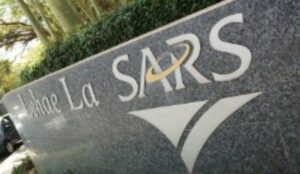
Jet fuel shortage in South Africa: SARS denies responsibility
SARS has addressed reports claiming that the jet fuel shortage is allegedly a result of delays in issuing licenses to fuel companies.

The South African Revenue Service (SARS) has acknowledged media reports suggesting an impending jet fuel shortage, allegedly caused by delays in SARS issuing licenses to fuel companies.
In a statement SARS indicated that this was ‘an incorrect position’.
Governed by the Customs and Excise Act
The importation and movement of both aviation kerosene and illuminating kerosene is strictly governed by the Customs and Excise Act.
It is the adherence to the provisions of the Act that has proven difficult for the fuel industry.
SARS wishes to clarify that the demand for both aviation kerosene and illuminating kerosene in the Republic, is met by the supply from licensed fuel manufacturers (“refineries”) and importation.
Since 2022, some of the coastal refineries have stopped manufacturing due to various reasons including destruction of infrastructure and relied on importation to meet the demand.
During April 2024, some of the refineries applied for and were granted temporary special storage warehouse (SOS) licenses for the storage and subsequent distribution of imported aviation kerosene to ORTIA and other airports.
This was done to avert an impending crisis of the shortage of aviation kerosene that was occasioned by statutory maintenance of certain refineries.
The licenses granted were for a specific period, and under specific conditions at that time.
These licenses were granted on the premise that the institutions would follow the formal process for licensing and have the necessary facilities in compliance with the Customs and Excise legislation.
SARS has provided clarity
The special customs and excise warehouse ensures control of goods and enables SARS to protect the state revenue.
SARS has endeavoured to provide clarity and certainty to the relevant entities that are transitioning from a manufacturing-based model to an import model.
In this regard, SARS has been assisting and guiding the entities to continue to trade within the bounds of the law while adhering to the necessary governance processes.
Importantly, SARS will be engaging with industry to announce a solution to immediately implement measures that will address the current challenges while ensuring that the provision of the law is upheld.
It is in SARS’ interest that the country’s economy and travelling is not impeded in anyway.
It is equally important that all the role players should also act expeditiously in meeting their obligations.
